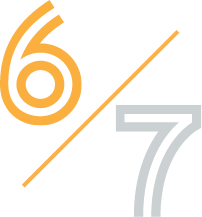
Ariadne Labs’ Spark Grants support early-stage ideas and to keep pace with new and emerging challenges.
By Erin Lawler and Stephanie Schorow
To continually tackle new challenges, Ariadne Labs’ Spark Grant program funds new and early-stage ideas to address gaps in health care delivery. More than 20 Spark Grants have been awarded over the last 10 years. Many have led to the creation of new areas of work at Ariadne Labs.
Take the example of David Levine, MD, MPH, MA, a practicing general internist and clinician-investigator at Brigham and Women’s Hospital. Levine has long focused on the concept that quality hospital care can be provided at home, offering benefits to both the patient and the health care system. After receiving a Spark Grant in 2018, Levine forged a relationship with Ariadne to explore the parameters of hospital care in the home in rural locations. He now heads Ariadne Labs’ Home Hospital program, which is conducting a randomized controlled trial to evaluate a rural home hospital model at three sites in the U.S. and Canada.
“Ariadne is a group of extremely creative thinkers and folks who have a very diverse background of training and expertise, and it was a place that I felt moved faster than traditional academic research,” he said.
One of the lab’s most recent initiatives, Precision Population Health (PPH), was started with Spark Grant funding in 2019. The work is spearheaded by Ariadne’s former Chief Science and Technology Officer Nic Encina, MBA, who now serves as PPH’s Director of Strategy, and Robert Green, MD, MPH, a physician-scientist who directs Genomes2People at Brigham and Women’s Hospital. PPH aims to bring the power of genomic medicine to primary care settings, where it can be used to treat disease or prevent it before it occurs. Encina sees the initiative as a way to save lives by incorporating genetic screening more broadly into medical care to reach more people.
“Let’s say you have primary care physicians who have never taken a genetic course in their life. How do you get them ready to identify which patients should be screened, get the results back, interpret results, and then have a conversation with them on some probabilistic and scary outcome that might happen, which immediately puts you into a serious illness care conversation?” said Encina. Clinicians are “struggling with a lot of raw implementation challenges that we work and solve all the time across our programs.”
Encina worked for years in the biotech industry and was a part of the Human Genome Project but wanted an opportunity to focus more on implementation. In biotech, he noted, “there’s a huge disconnect between what you’re doing every single day and actually making a difference.” By moving “downstream” to Ariadne, he knew that the work “could have immediate influence on people’s lives because it’s really at the point of care.”
Spark Grants have supported projects in areas ranging from primary care to surgery to mental health. Specific grants include studying the use of mobile phones in surgical recovery; developing safe protocols for postpartum cesarean care in rural Africa; and developing a provider-payer strategy to increase the use of home-based palliative care.
Spark Grants play an important role in expanding Ariadne’s community to continually bring new perspectives to the work and to allow the Ariadne method to influence new areas of medicine and public health. “In the next ten years, we will continue to see new challenges in the health care system, but the Spark Grant program will play an important role in incubating new ideas that develop into impactful, scalable solutions for systems-level change,” said Meghan Long, MHA, Assistant Director of the Innovation Platform.
